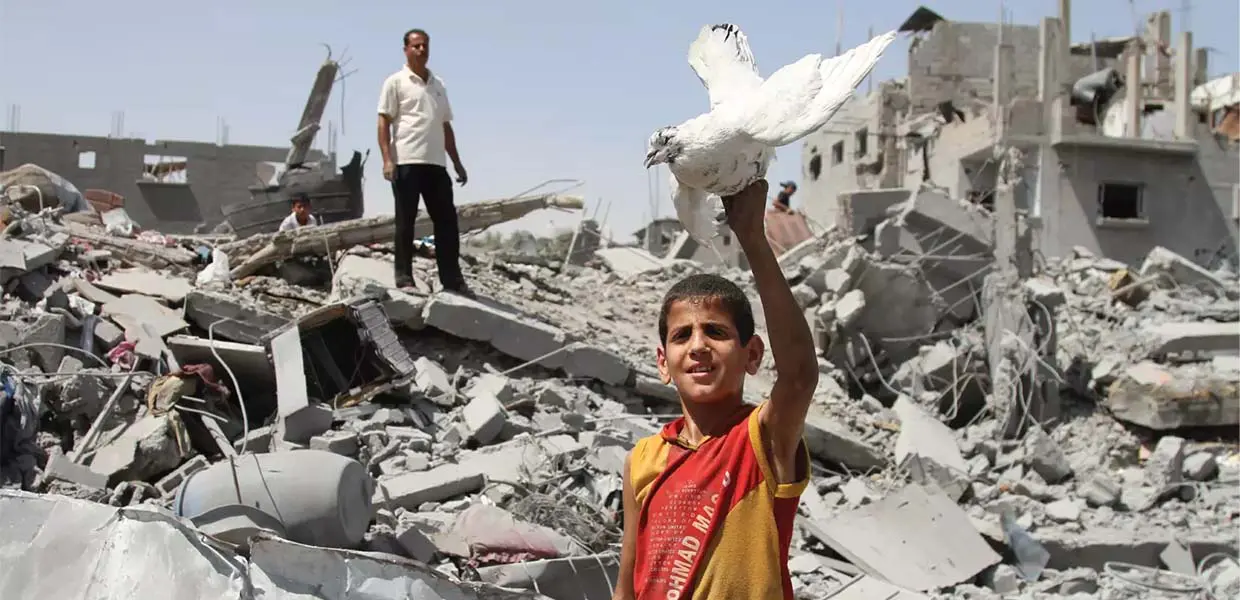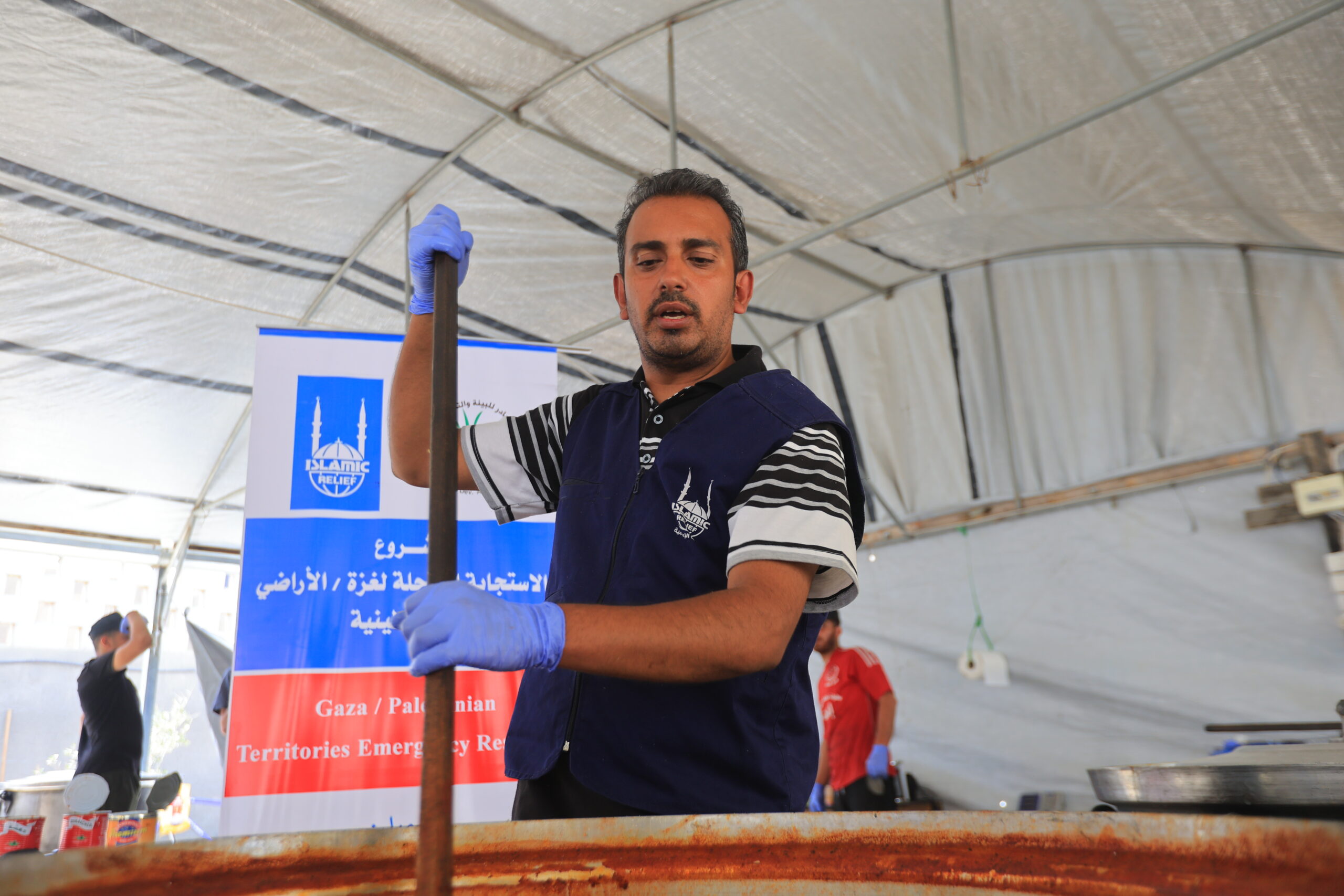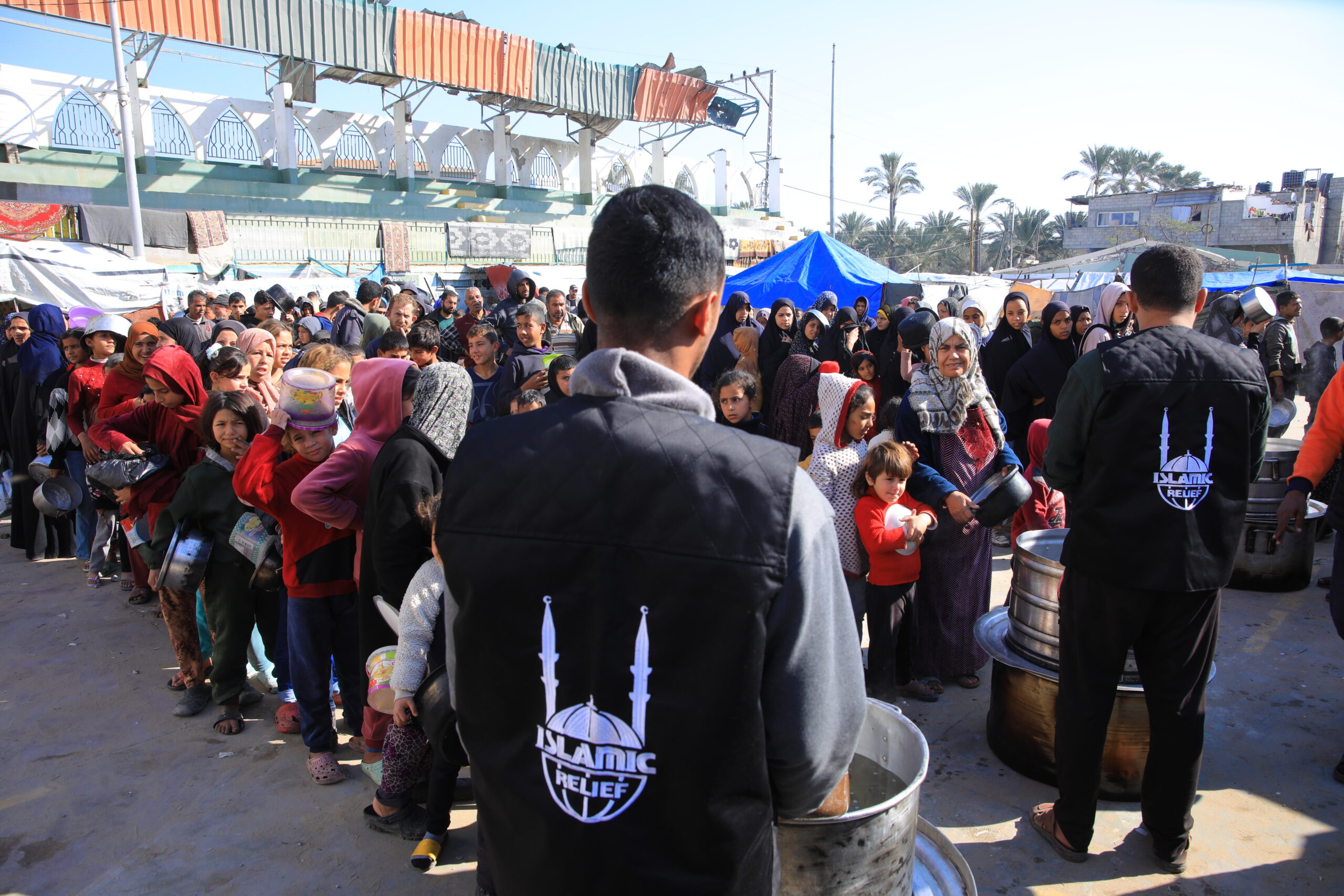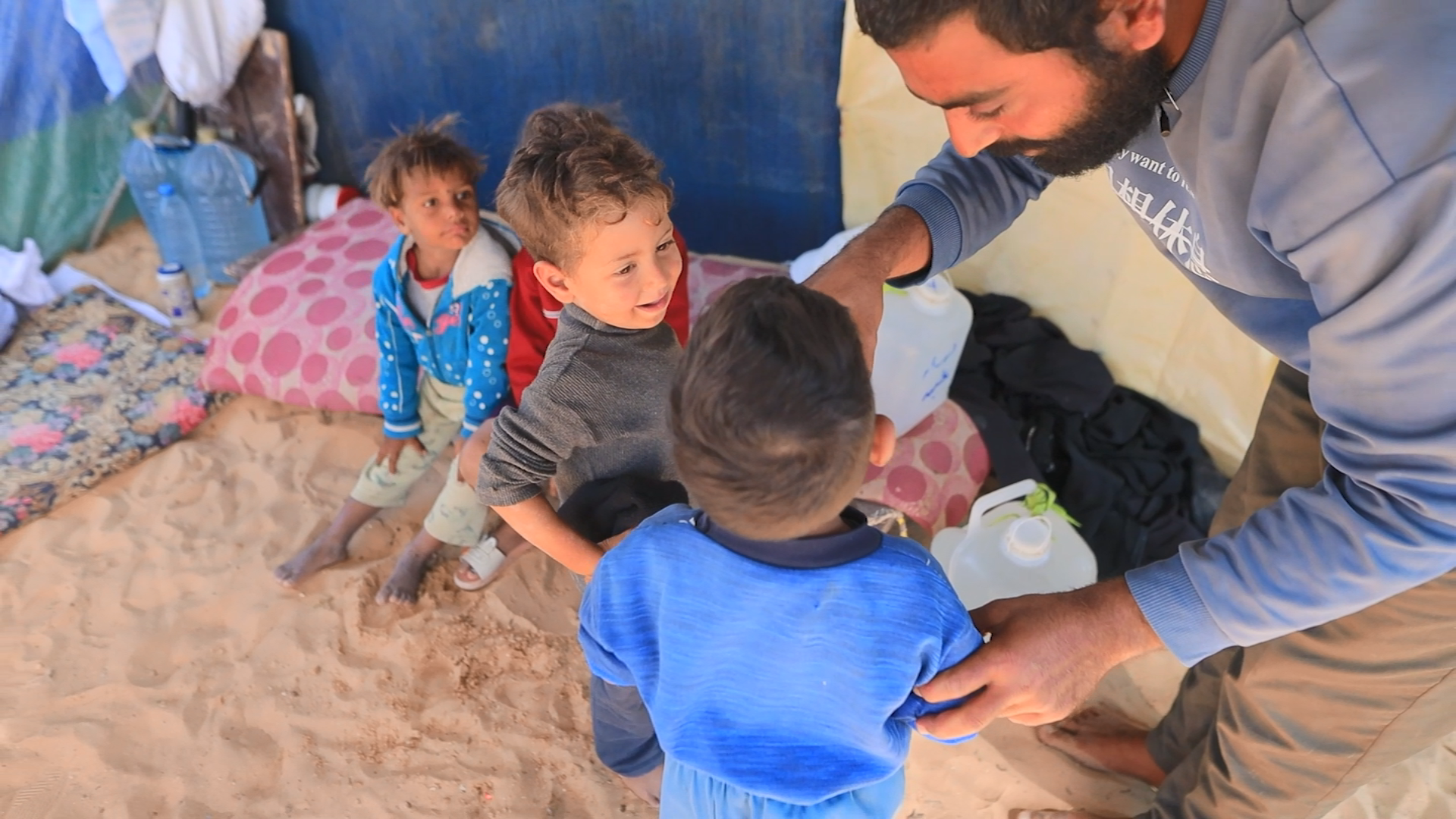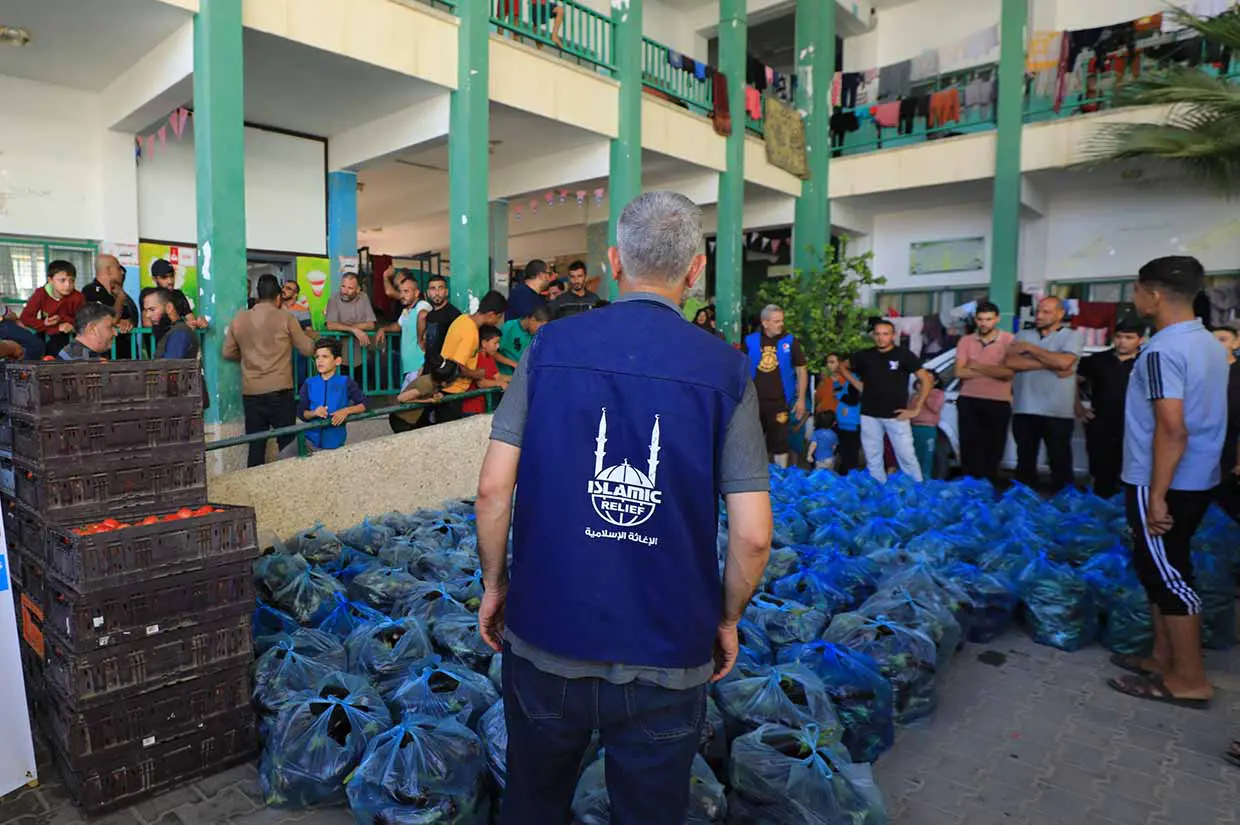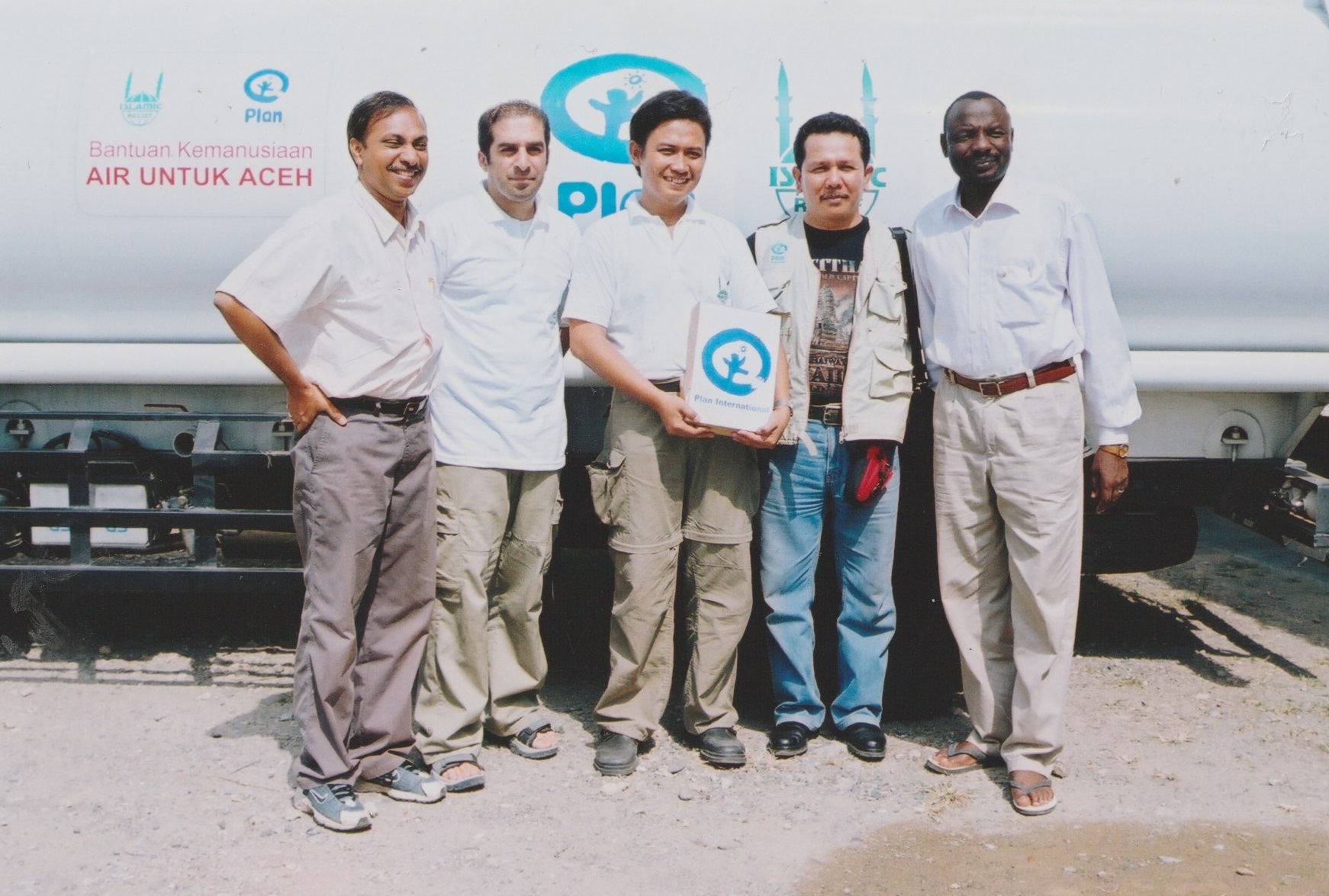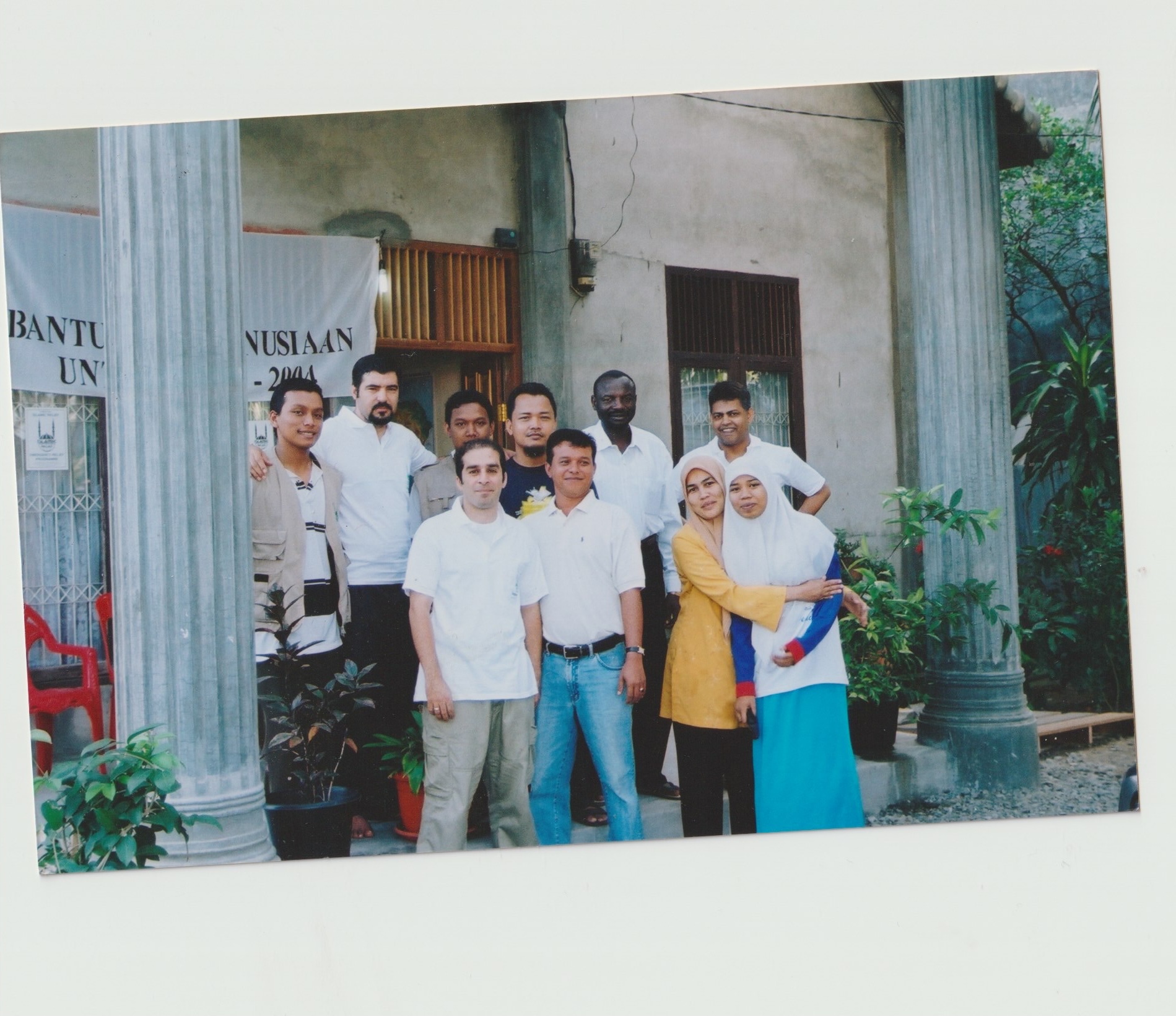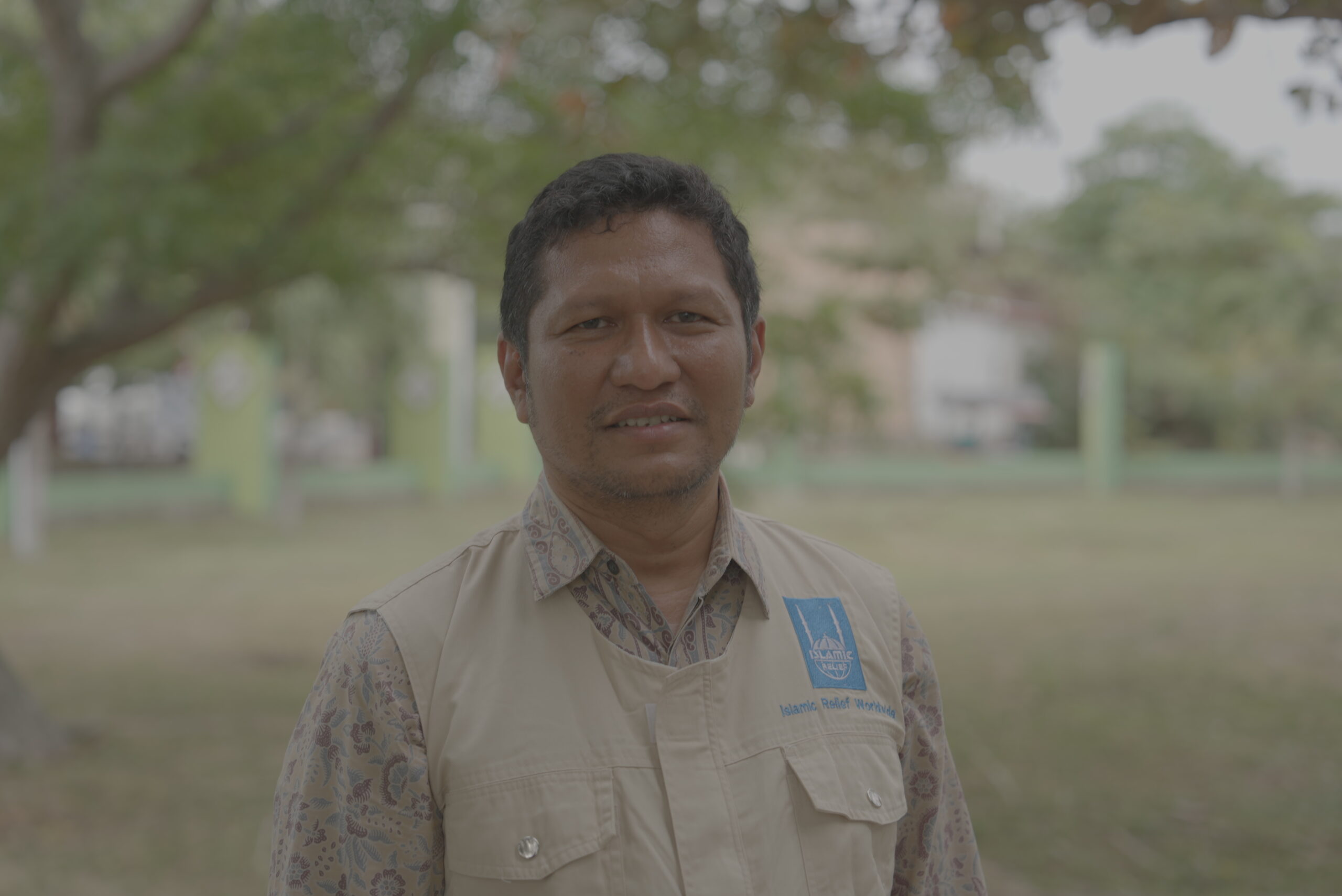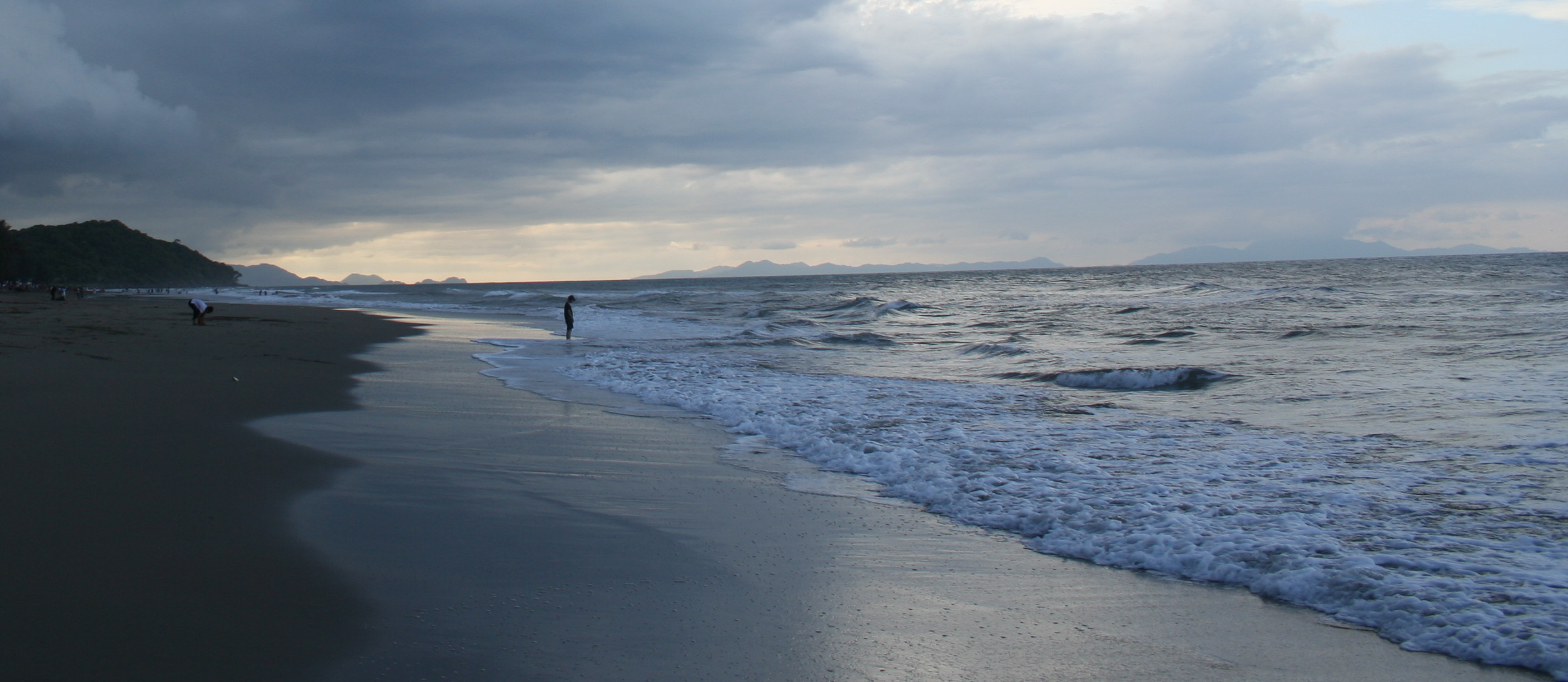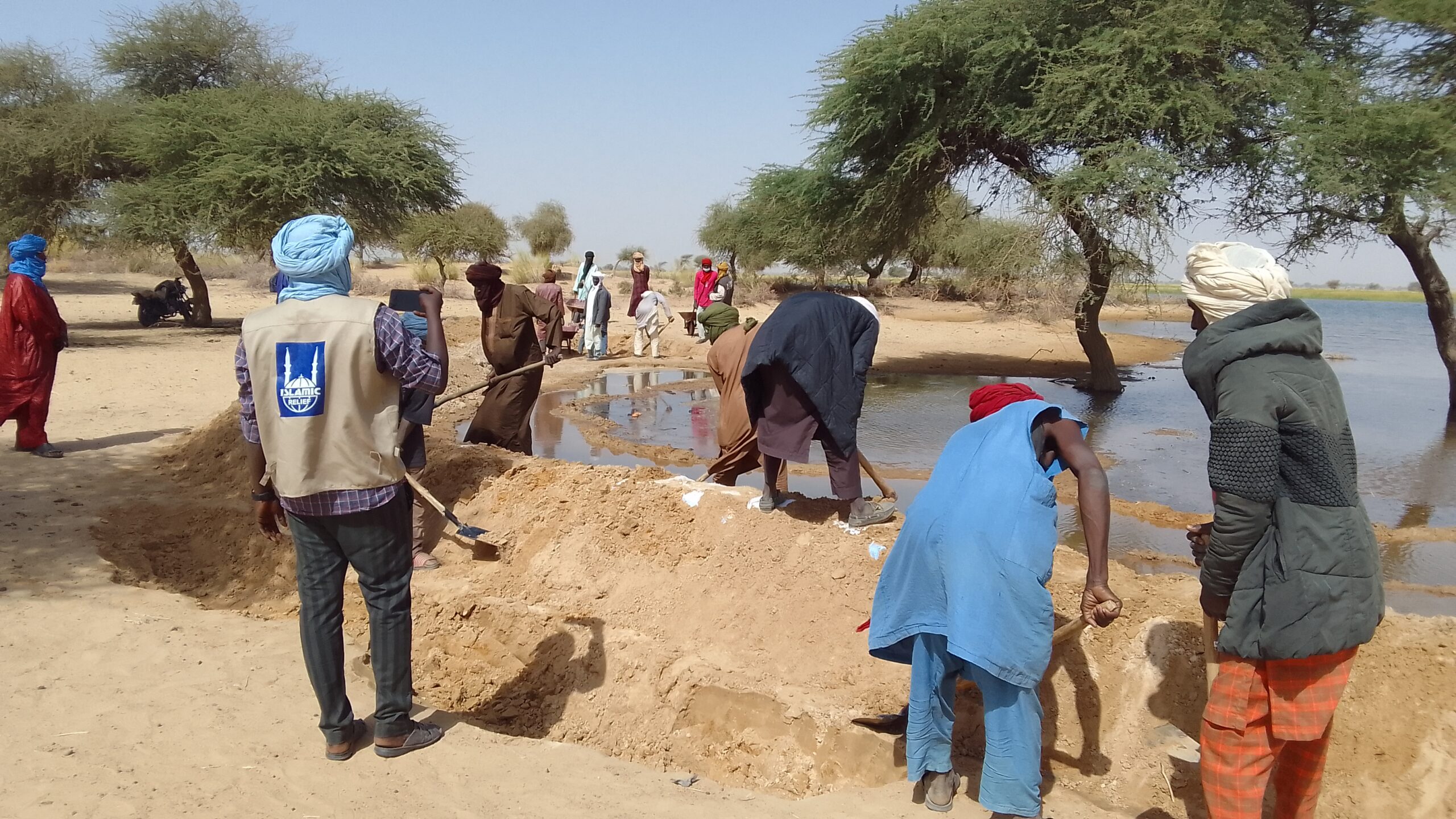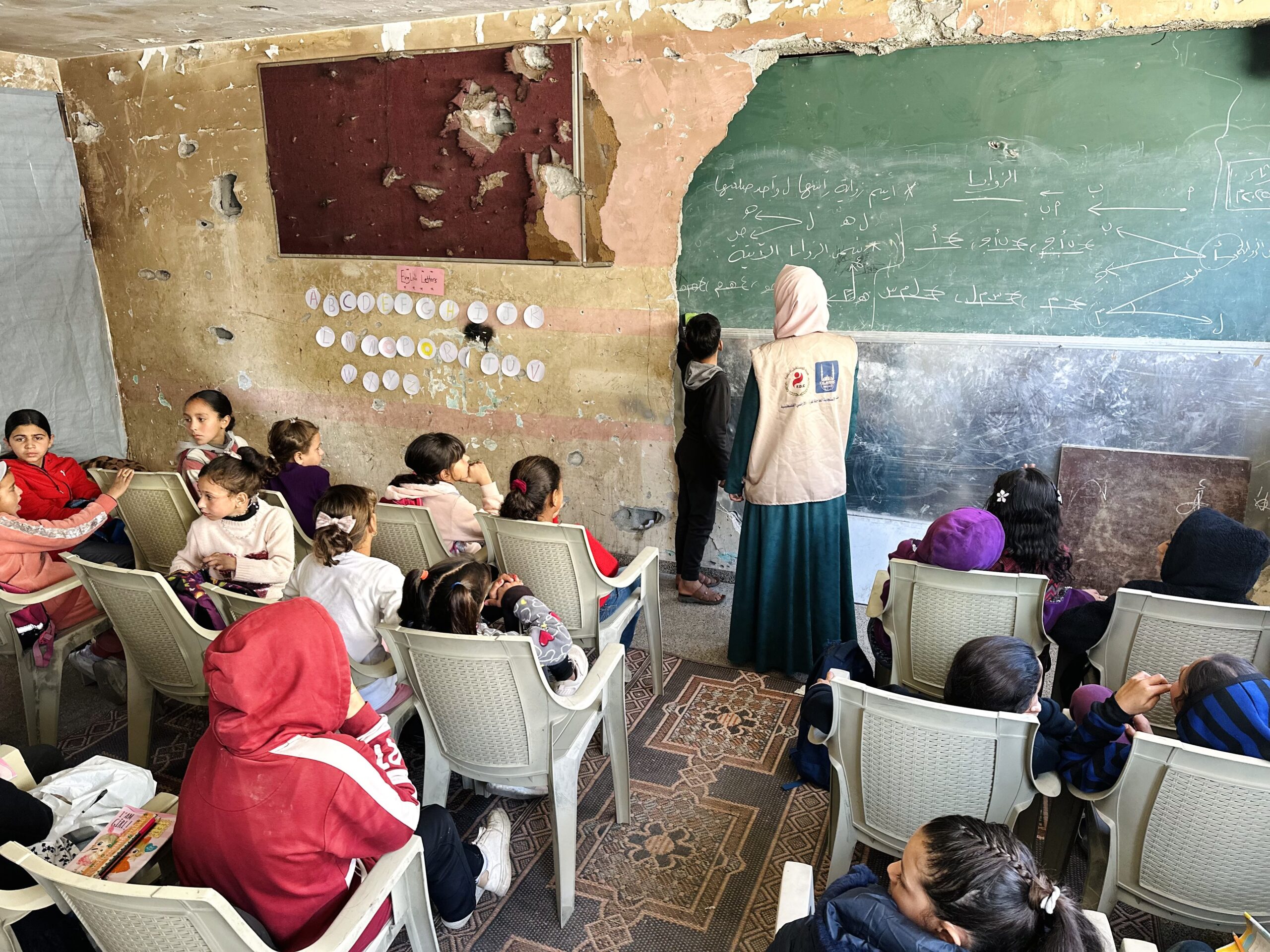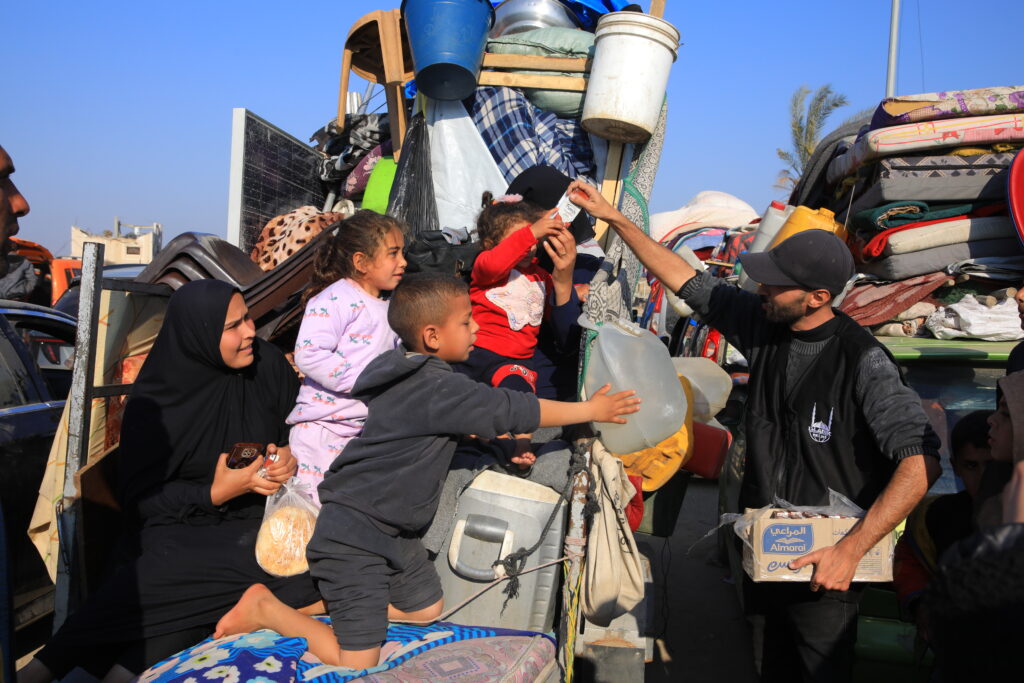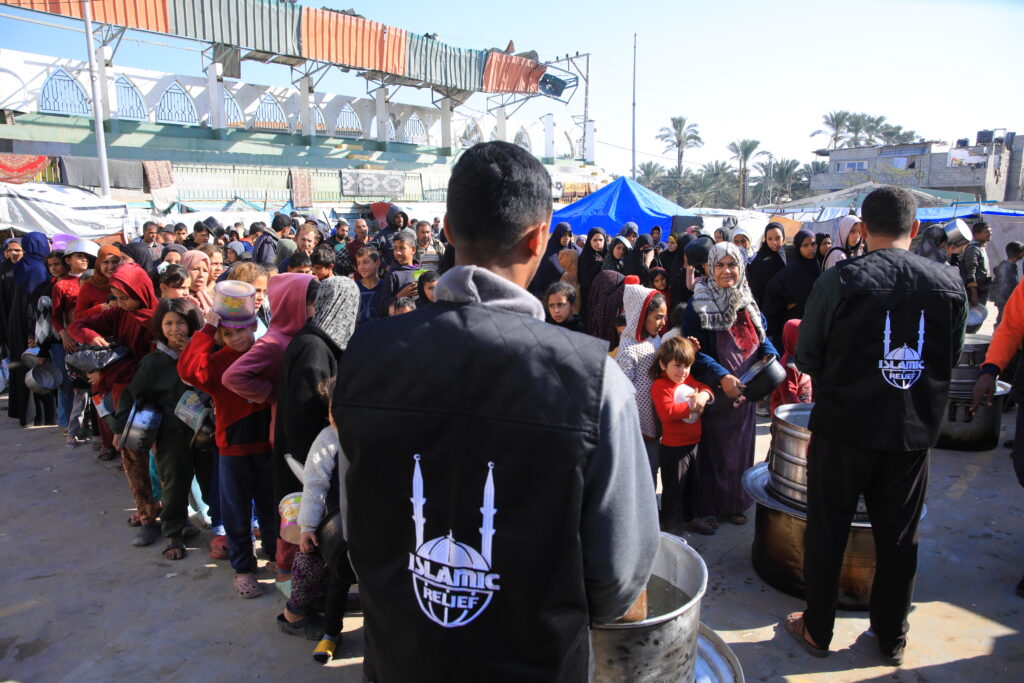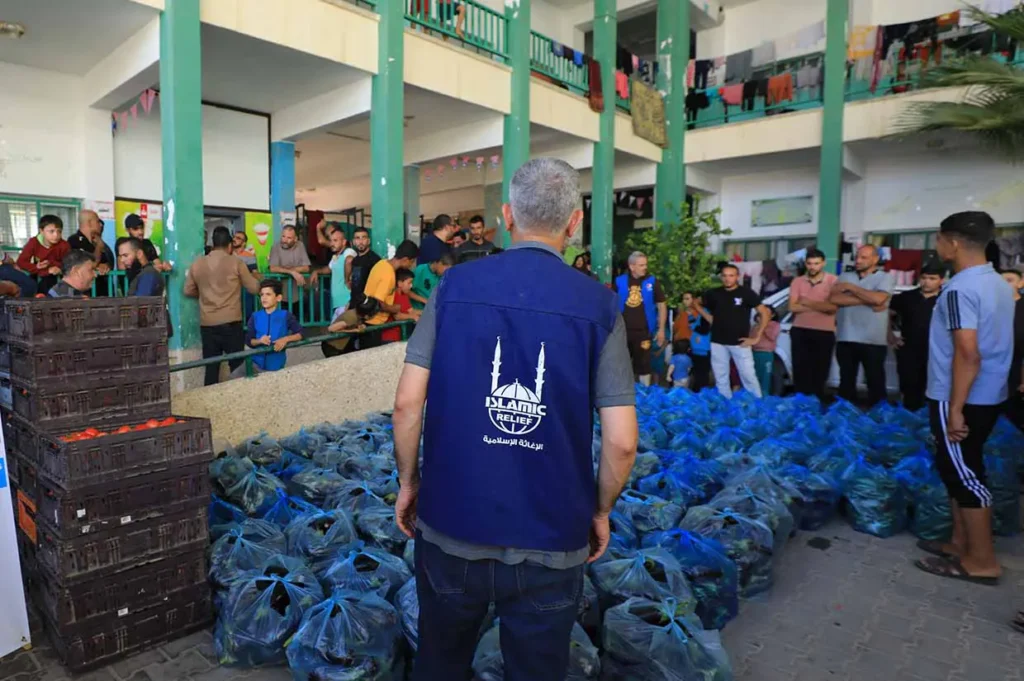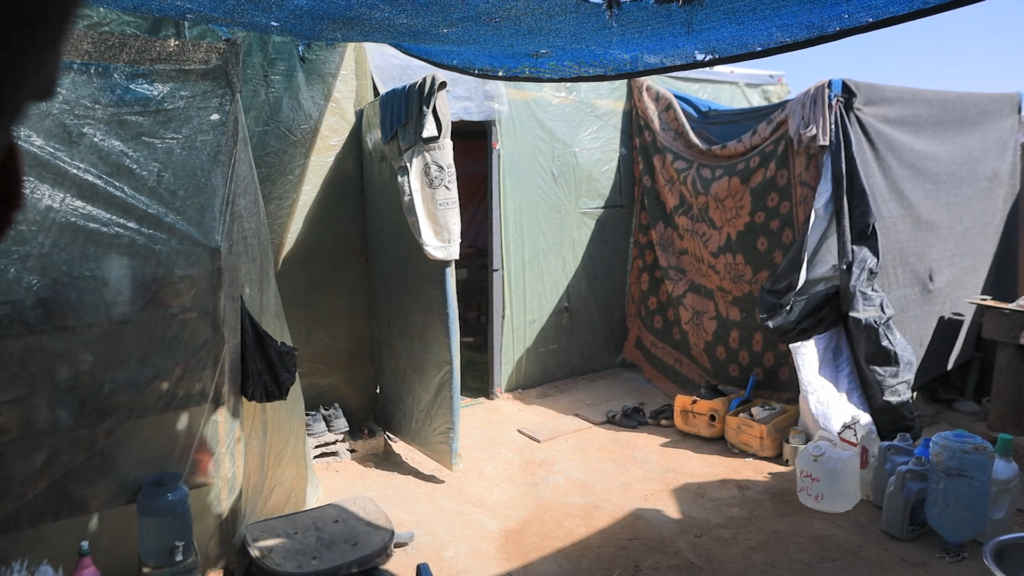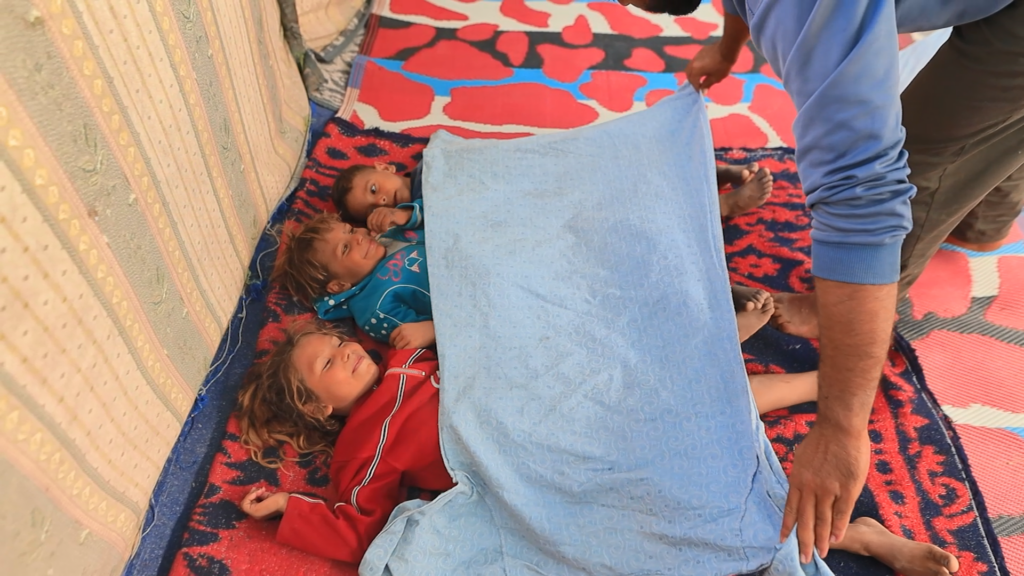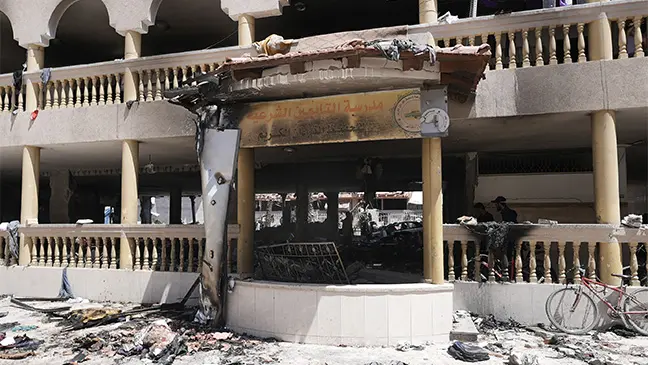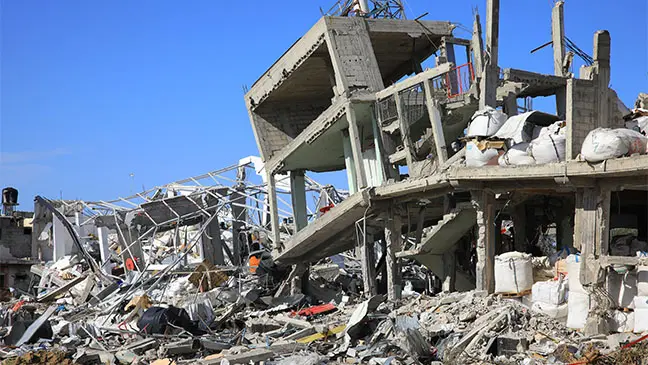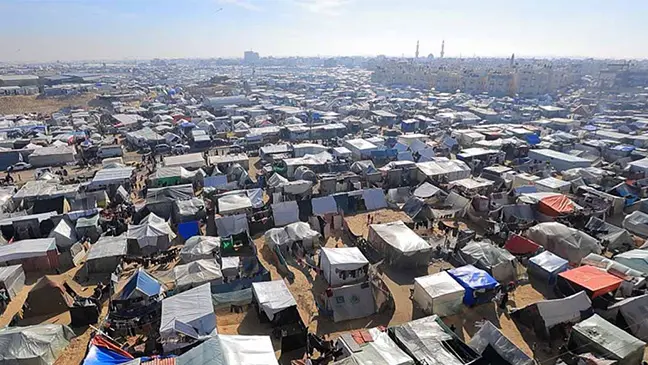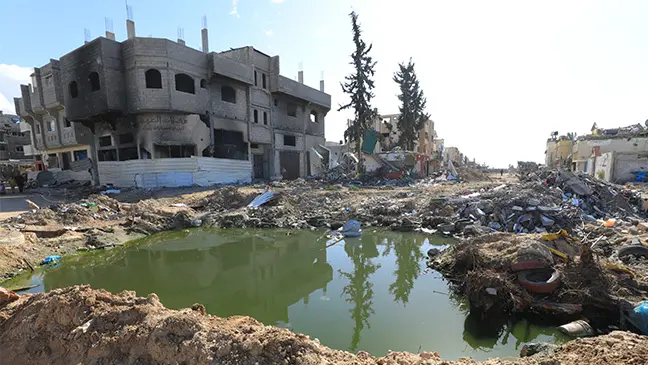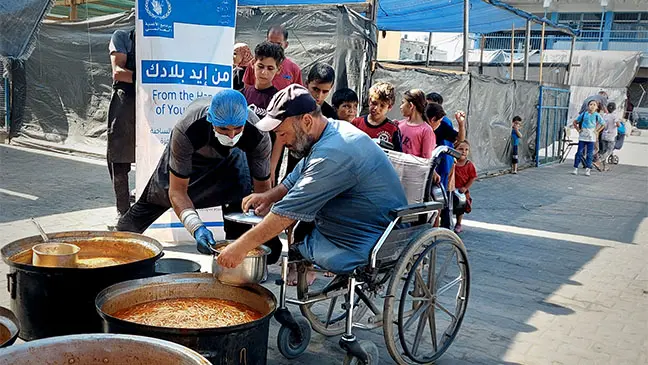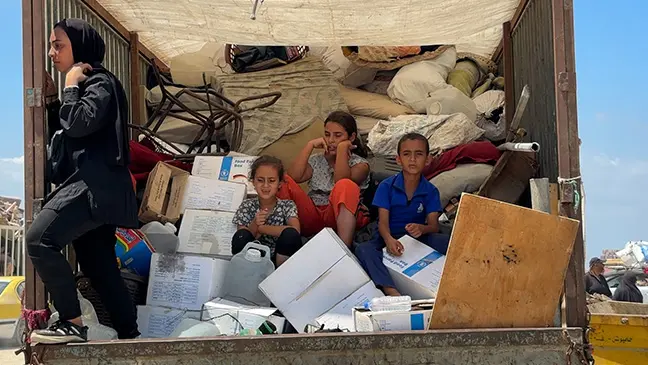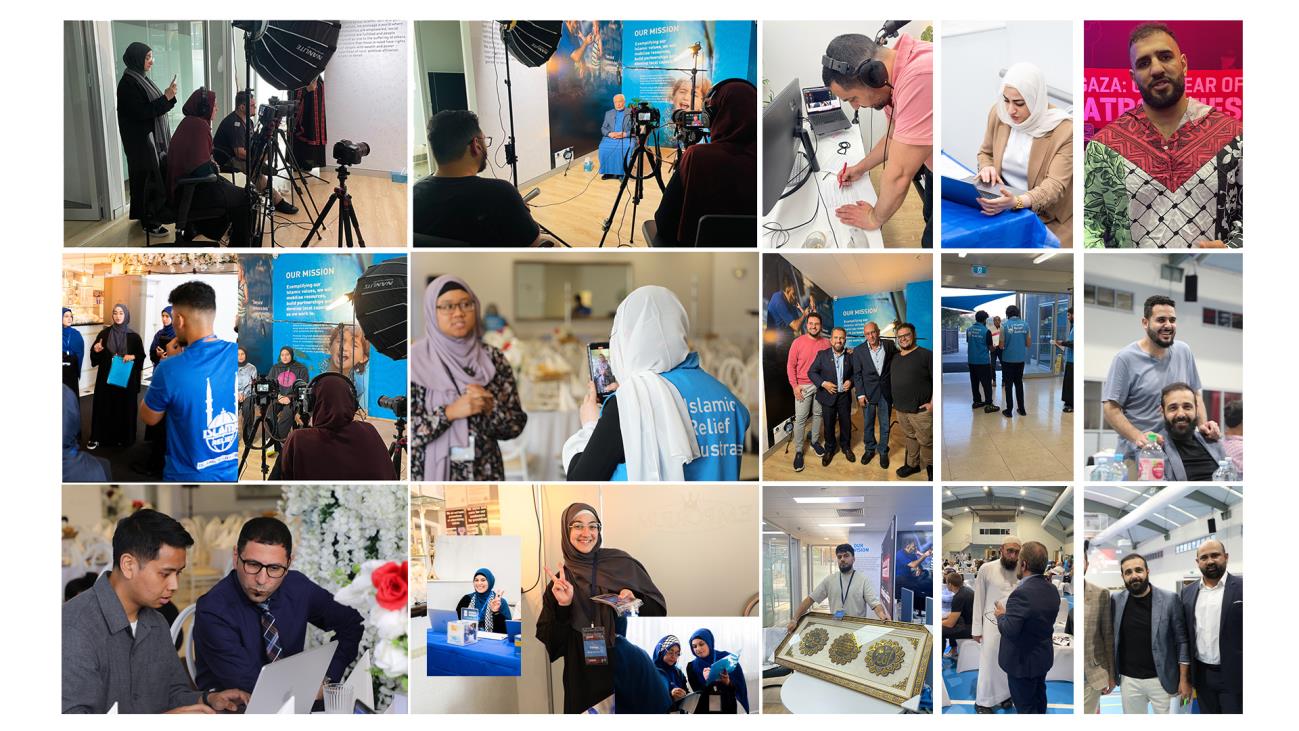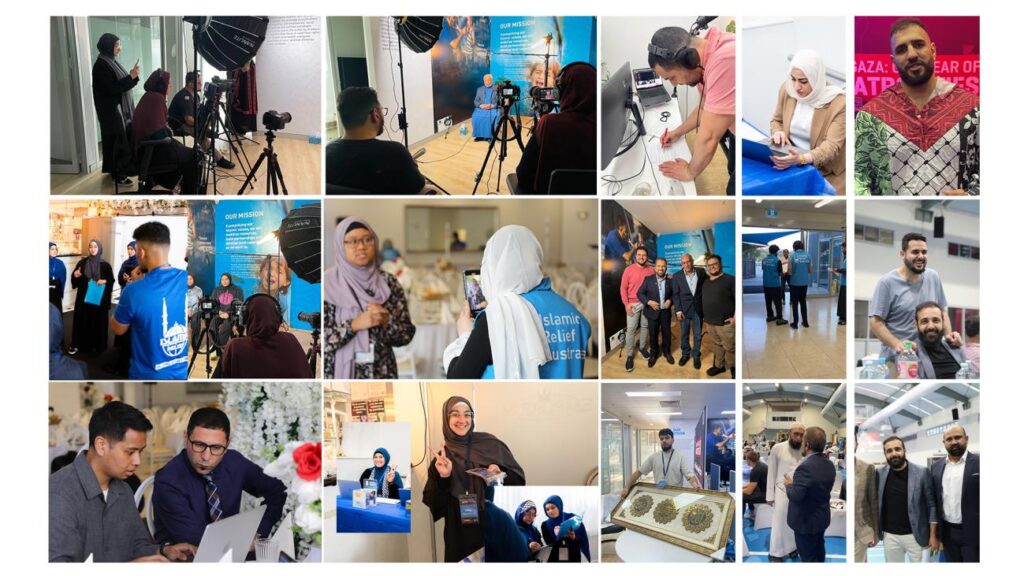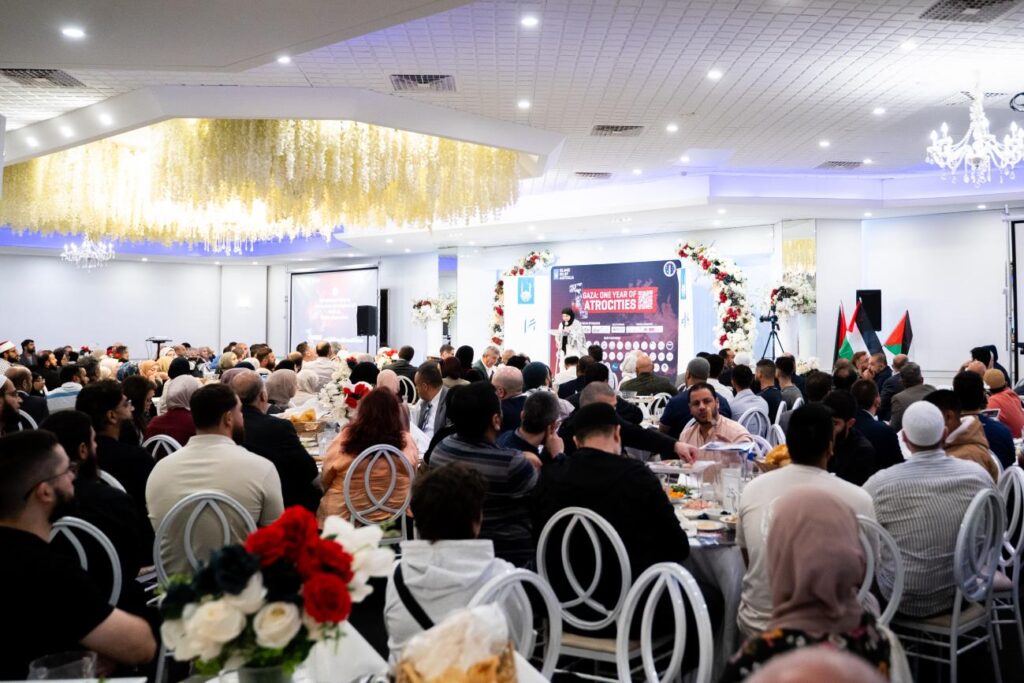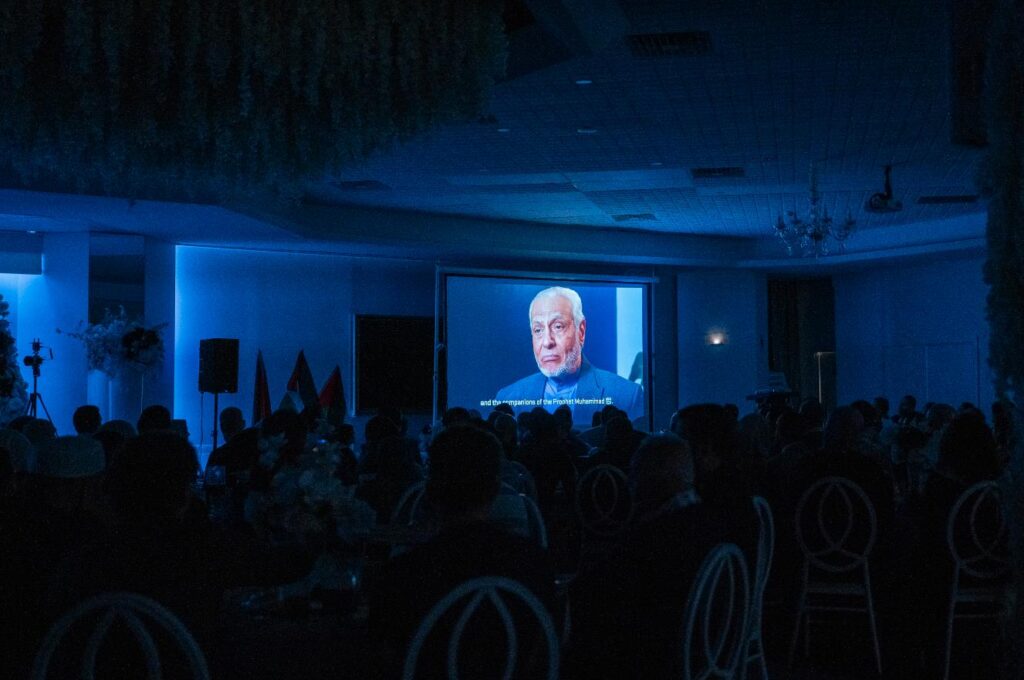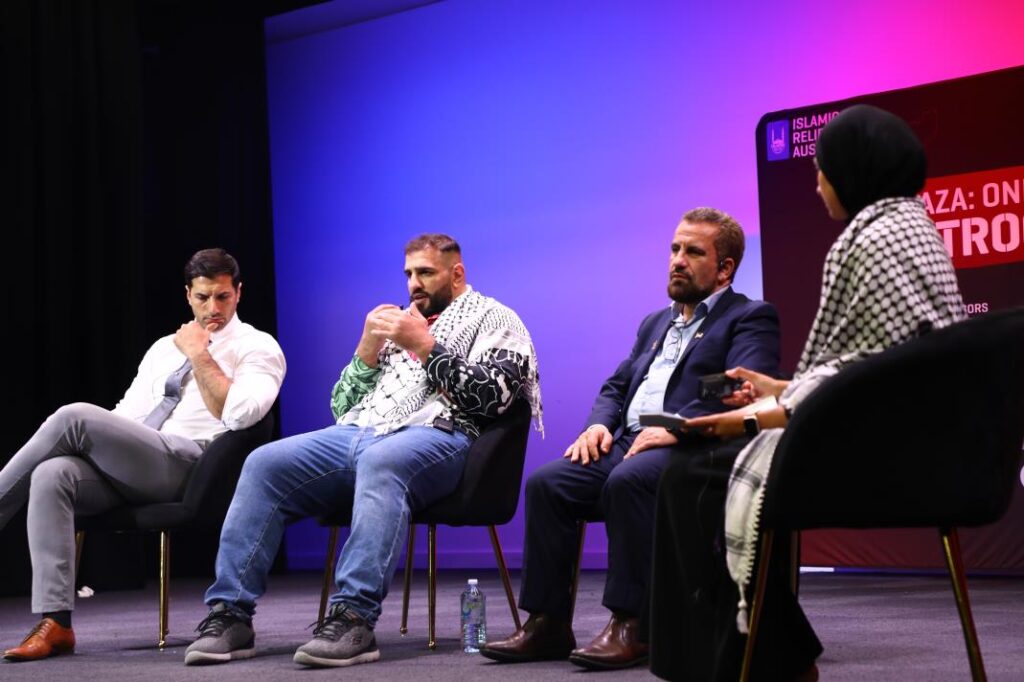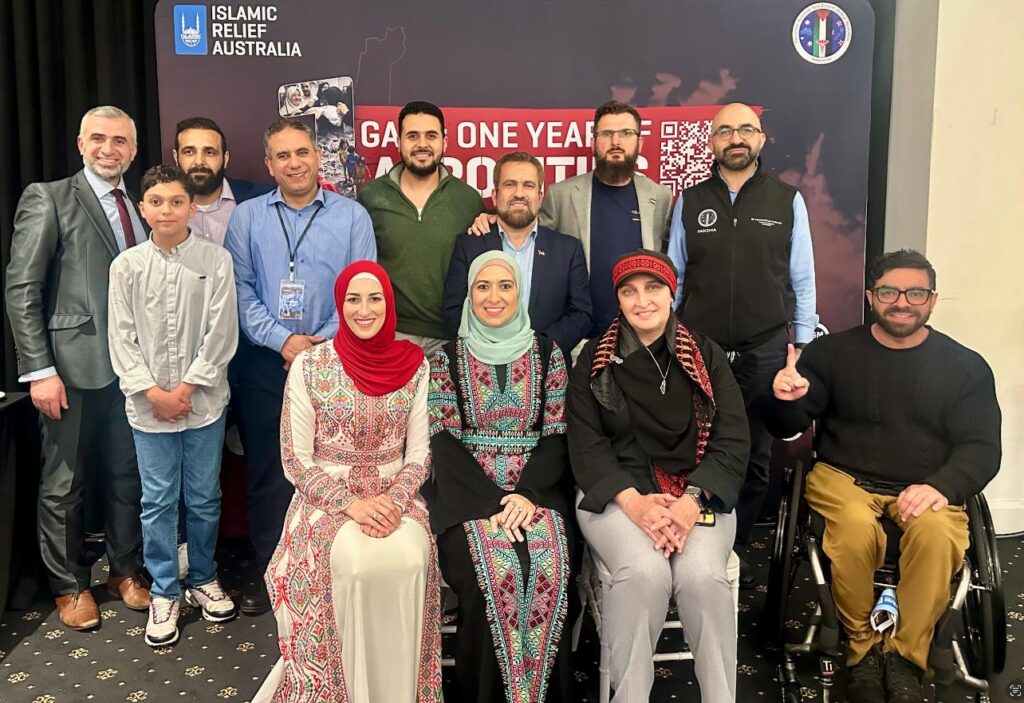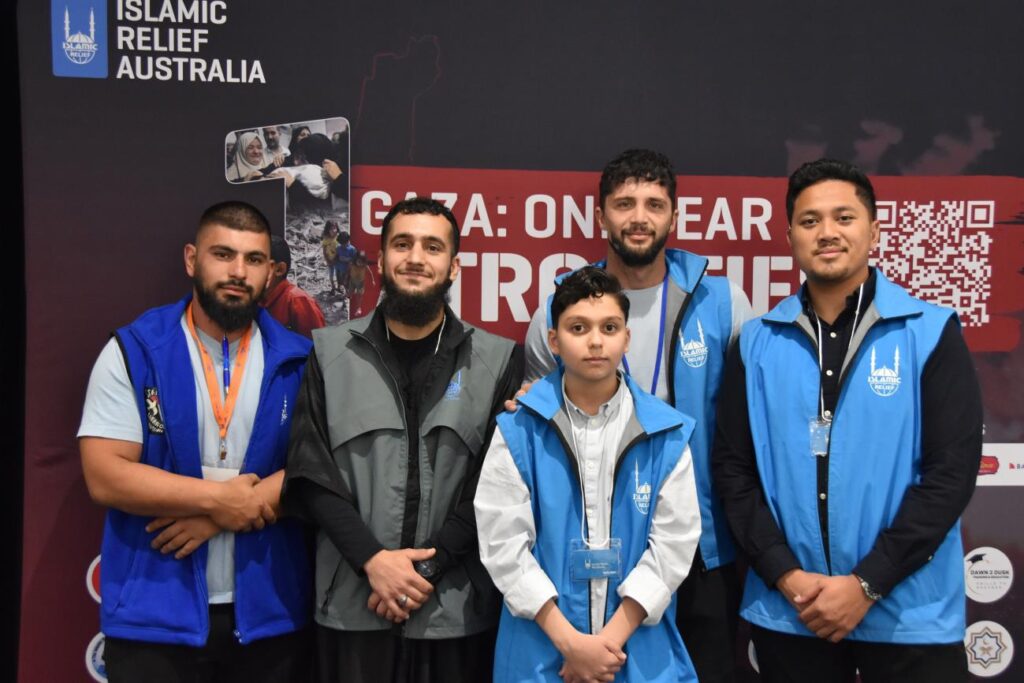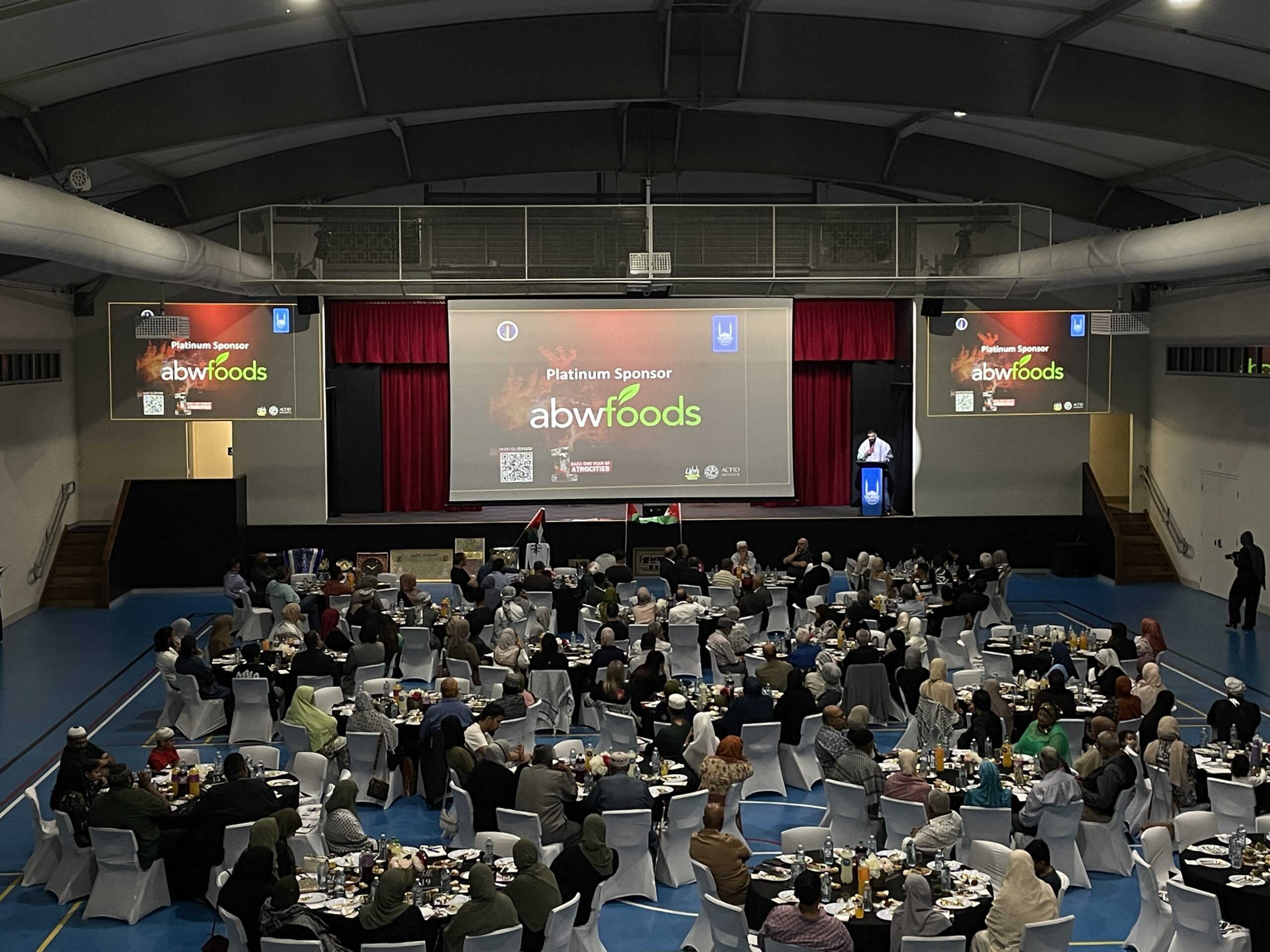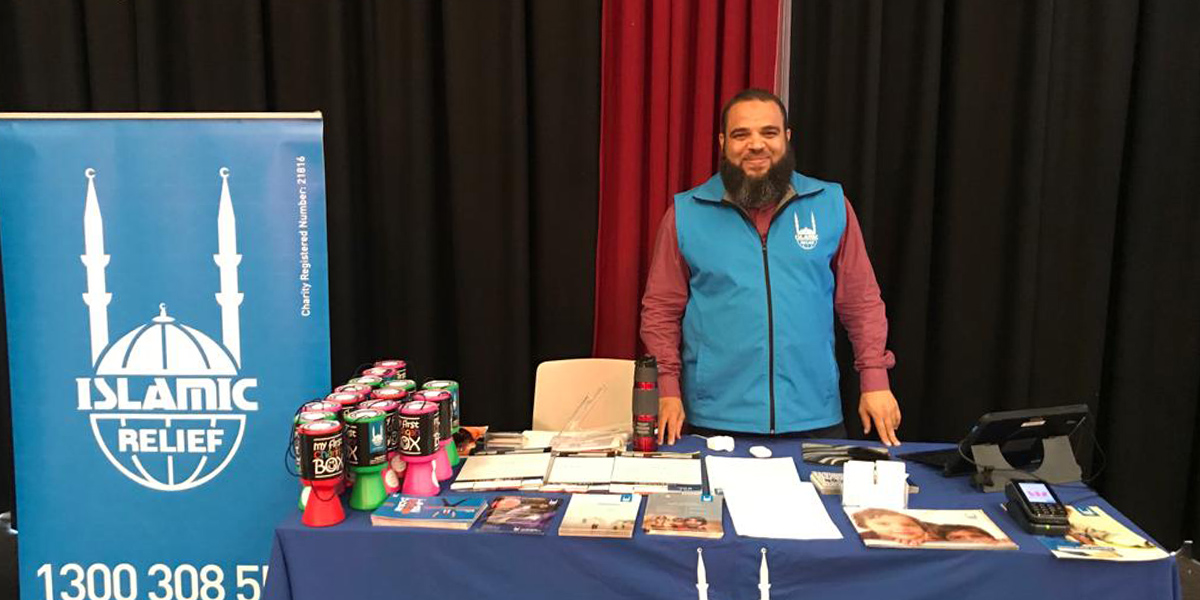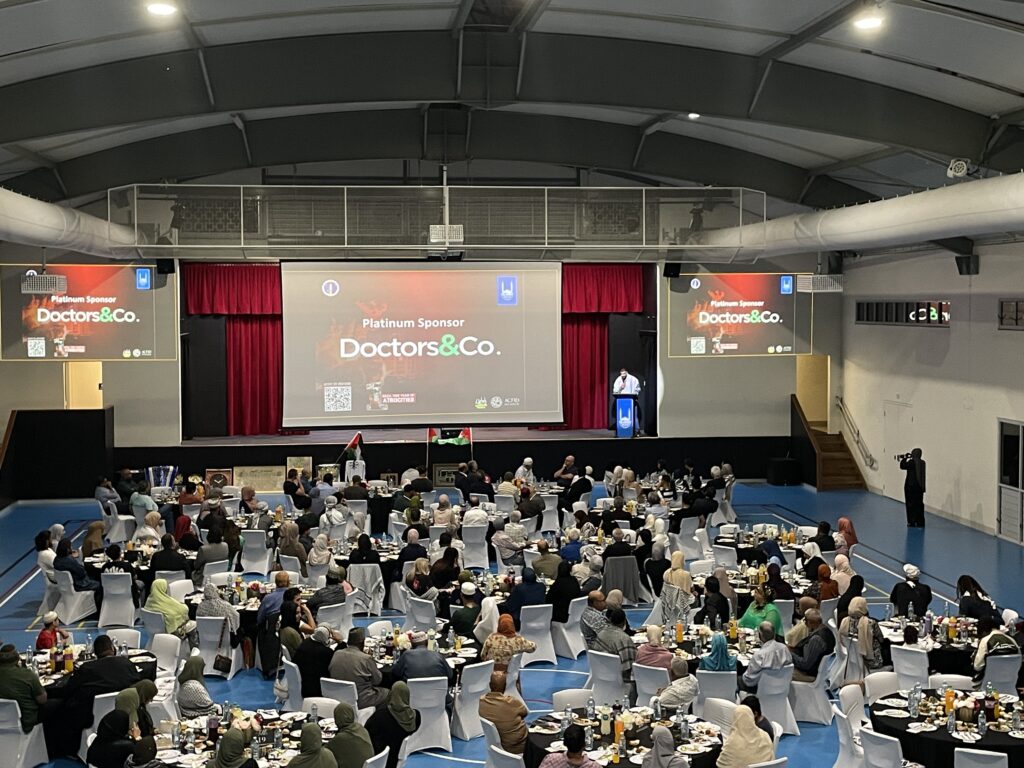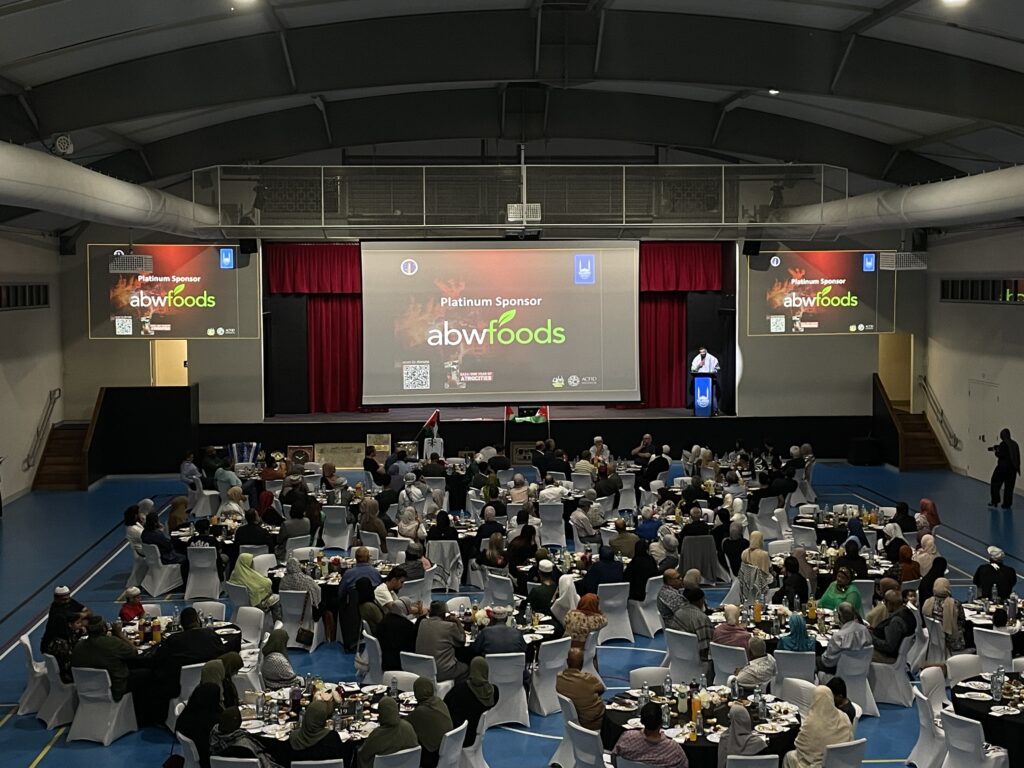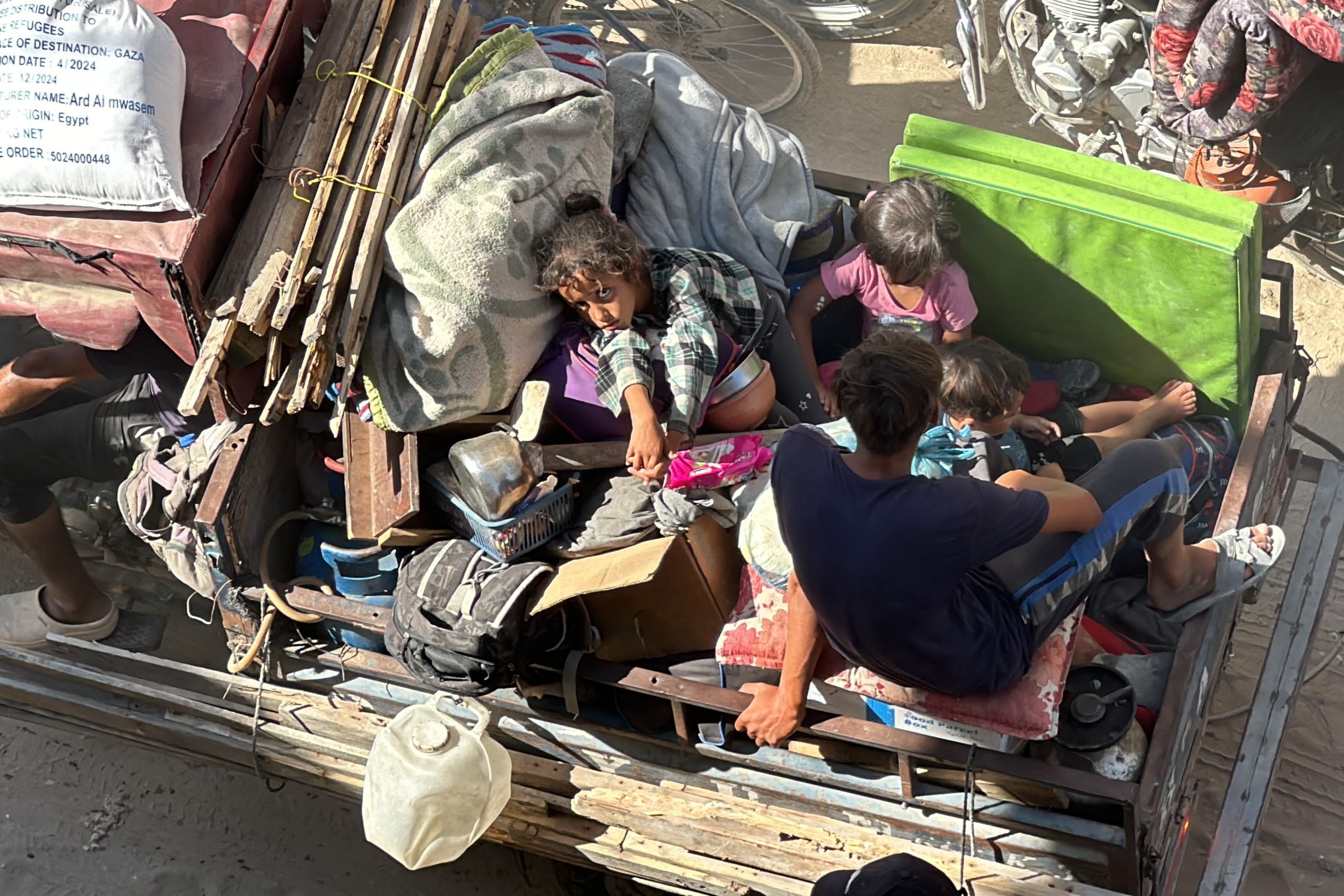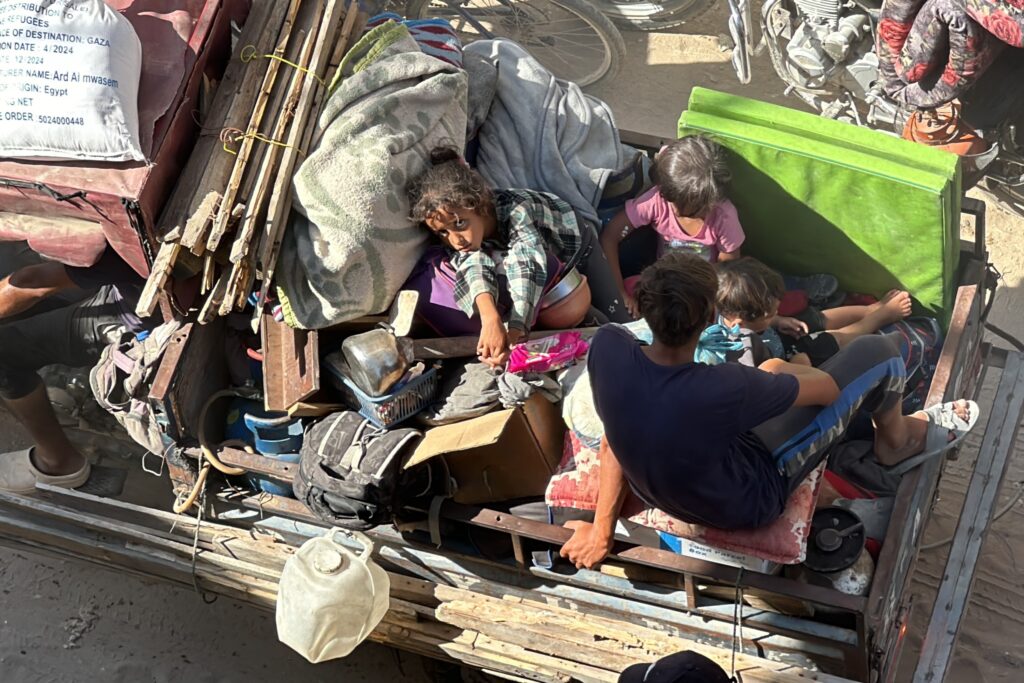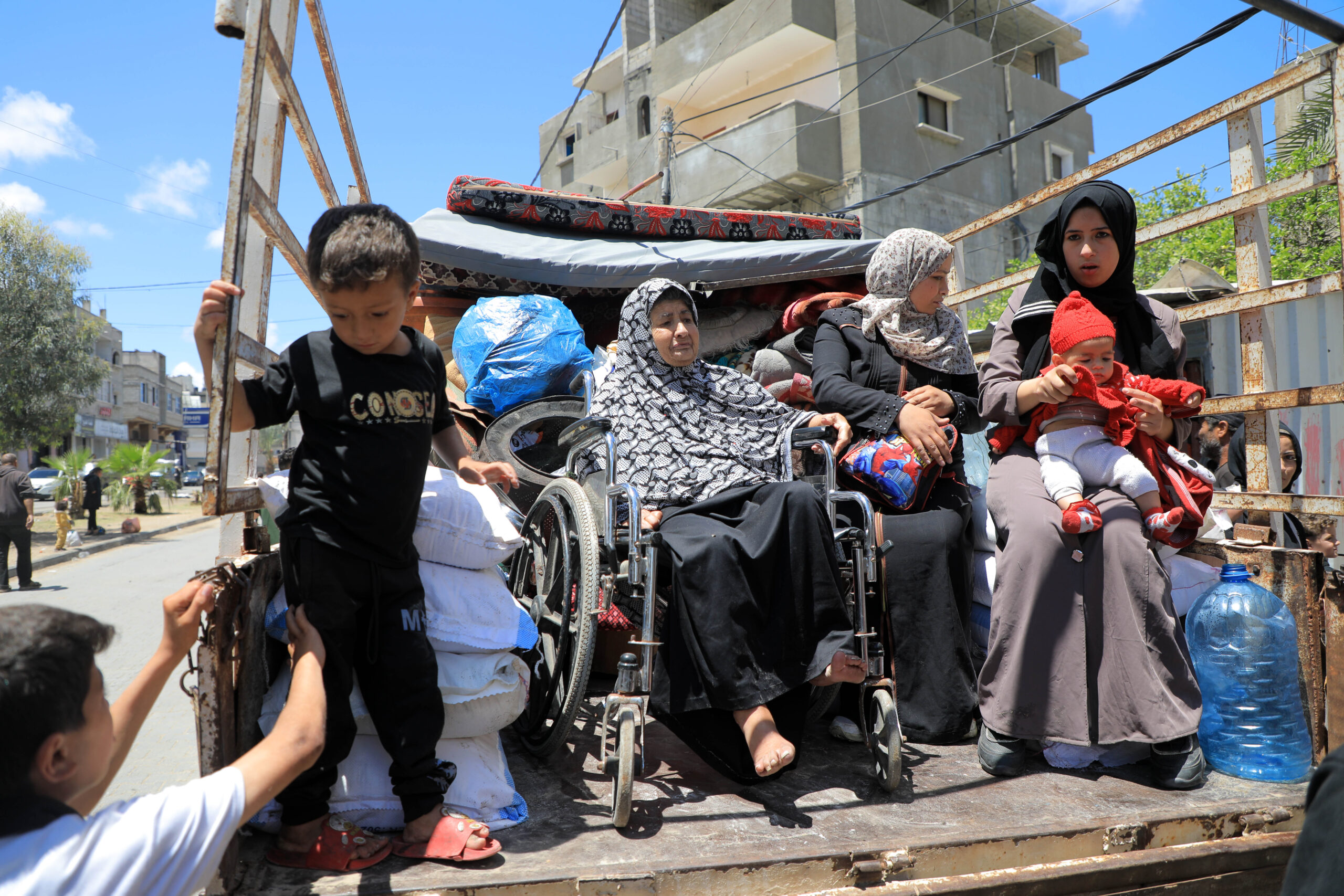
05.15.25
Nakba Day and its significance to Palestinians
Today is Nakba Day, an annual day of commemoration. A day of remembrance made especially poignant this year, as we mark over 200 days into ongoing bombardment, displacement, and blockade of Palestinians in Gaza. Here we look at the origins and significance of the day.
What is Nakba Day?
May 15 is Nakba Day. It marks the beginning of the destruction of the Palestinian homeland. The mass displacement in 1948 of the majority of the Palestinian population.
Nakba means ‘catastrophe’ in Arabic. It is the word Palestinians and others use to refer to this historic moment from over 75 years ago. For some, the term is also used to describe the subsequent and ongoing persecution of Palestinians and loss of territory.
In 1998, Nakba Day was officially inaugurated by Palestinian leader Yasser Arafat. But the date had been marked with protests of remembrance and resistance since 1949.
What happened in May 1948?
May 1948 saw the start of a mass displacement, which forced over 700,000 Palestinians out of their homes.
Over the course of the 1948 Palestine War, Israeli forces destroyed more than 530 Palestinian villages and carried out several massacres, killing some 15,000 people. This war lasted until January 1949.
78% of Palestine’s historic territory was captured and used to establish what is now Israel. The remaining land was divided into today’s Occupied West Bank and Gaza Strip.
Following Israeli victory in the war, abandoned homes were given to Jewish settlers. The descendants of many of the Palestinians who fled in 1948 remain displaced to this day, both within Palestine and around the world. Today, there are now some 6 million Palestinian refugees.
What led up to this?
From 1920 to May 1948, Britain ruled over a territory called Mandatory Palestine under an agreement by the League of Nations – a precursor to the United Nations.
Following the end of World War II and the Holocaust, the British announced their intention to end the mandate. Then, the newly created United Nations began seeking to redraw the boundaries of Palestine to allow for the creation of a Jewish state.
None of the various partition plans suggested received support from the Palestinians or the Arab League. However, when the mandate ended, the establishment of the state of Israel was declared. This triggered the 1948 Palestine War, also known as the 1948 Arab-Israeli War.
What happened after the Nakba?
In the 76 years since the Nakba, the Israeli state has continued to encroach on Palestinian territory. They displace families and violate international law in the process.
Among the major instances of this was the Six-Day War of 1967. This war saw Israeli forces occupy all of historic Palestine, including Gaza and the West Bank, expelling 300,000 people from their homes.
In the decades since, tensions in the region have remained high, with relatively frequent flare-ups.
However, the scale of the current escalation is truly unprecedented. Since October 7th, 2023, over 52,700 people have been killed. Many more have been displaced, among them people who moved to Gaza after the Nakba. A reported 450,000 people are said to have fled Rafah over the past week alone.
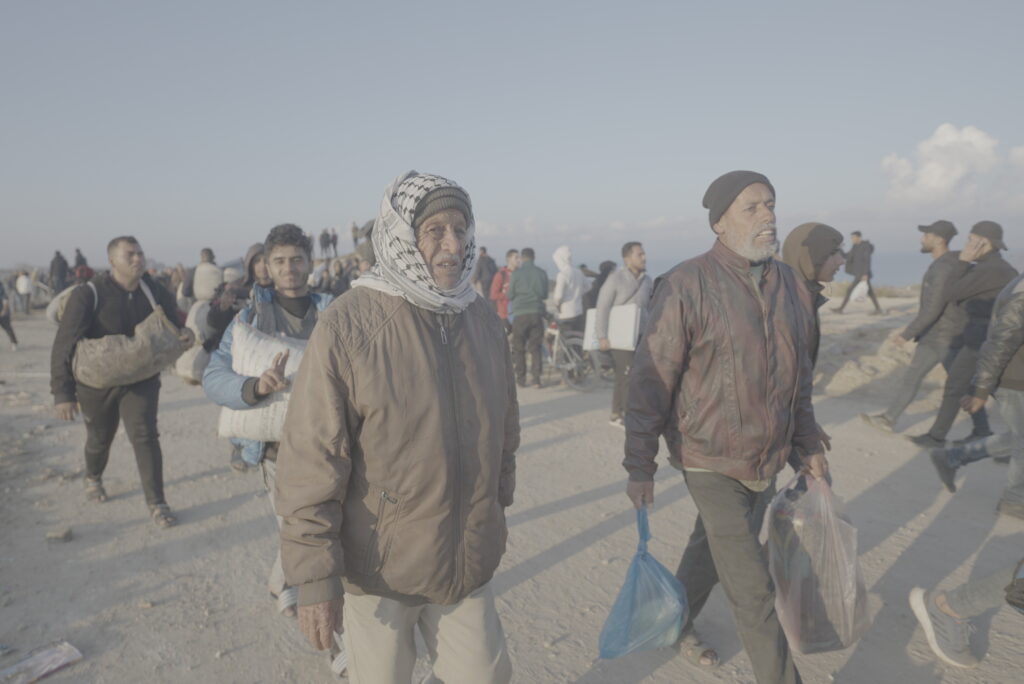
What was Palestine like before the Nakba?
Immediately before the Nakba, Palestine was administered by the British. The establishment of Mandatory Palestine took place in a period of intense European colonial expansion. It followed the expulsion of Ottoman forces from the Levant in the Arab Revolt (1916-18). Prior to the Mandatory period, Palestine had been part of the Ottoman Empire for 400 years.
During the Mandatory period, Palestine became a cohesive political unit with Jerusalem as its capital. The period saw advances in bureaucracy, infrastructure, and technology. It is also considered to have laid the groundwork for the establishment of Israel in part by promoting Jewish immigration and depriving Palestinians of self-rule.
What are the long-term consequences of the Nakba?
The Nakba resulted in the world’s longest-running unresolved refugee crisis. Some 6 million Palestinian refugees reside within Gaza and the West Bank, as well as in neighbouring countries such as Jordan, Lebanon, and Syria. In some cases, Palestinian refugees in the Middle East have endured wars and further displacement in their host countries.
The enormous loss of territory that began with the Nakba continues to affect the everyday lives of Palestinians. Many valuable resources are located on land now claimed by Israel. This prevents Palestinians from accessing them and potentially growing their economy.
The Israeli occupation, which has been ruled illegal under international law, impacts every aspect of Palestinians’ lives. It denies their basic human rights, undermines their dignity and entrenches poverty. Restricts movement, trade, and access to water, services, farmland, markets, families and religious sites. Cuts Palestinians in Gaza, East Jerusalem and the West Bank off from each other.
Gaza has been under Israeli blockade since 2007. The blockade restricts the movement of goods and people in and out of the Strip. It devastates the economy and people’s futures and disrupts humanitarian efforts.
For years, thousands of essential items have been restricted from entering Gaza because Israel considers them to have a ‘dual use’. This means items that could potentially be used for both civilian and military purposes. In practice, this can include almost anything that people need—things like fuel, water filters, solar pumps and surgical scissors have been refused entry.
Since October 2023, Israel has tightened the blockade even further, preventing many more vital items from entering. On 2 March 2025, Israel completely closed all crossings into Gaza and stopped all food, medicine, fuel, and other lifesaving supplies from entering.
How is Nakba Day commemorated?
For many, Nakba Day is an opportunity to draw attention to the persecution of Palestinians, historic and ongoing. It is a struggle that is still very much ongoing, particularly in years such as this, when Nakba Day falls during an escalation in the crisis.
The day is also a time to celebrate Palestine’s rich culture and history outside a narrative of suffering, which for many defines the territory and its people. Palestinians are not only resilient. They are talented writers and dancers, gifted embroiderers and generous hosts.
In 2023, for the first time in history, the United Nations marked Nakba Day. The global body held an event to “serve as a reminder of the historic injustice suffered by the Palestinian people,” as well as to highlight the ongoing refugee crisis. The event included speeches, music, photos and personal testimonies.
More than 30 countries voted against the resolution to commemorate Nakba Day. This reflects the inability of many states to balance the acknowledgement of Palestinian suffering with their own support of Israel. Israel often opposes official and unofficial commemorations of Nakba Day, describing them as an obstacle to peace in the region.
Why is Islamic Relief talking about Nakba Day?
Islamic Relief has been working in the Occupied Palestinian Territory since 1997, supporting Palestinians in need through emergency response efforts and development programming.
Many of our staff and local partners have become displaced since October 2023 and are facing the same challenges as the communities we support. Our office in Gaza is among the almost 900,000 buildings destroyed or damaged by the ongoing bombing campaign.
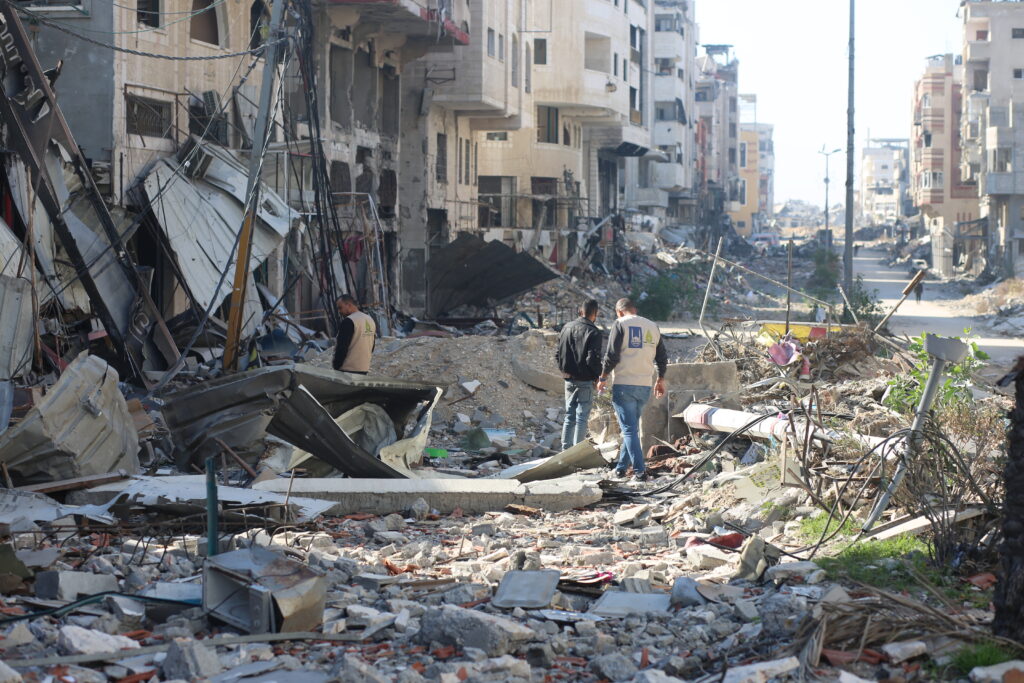
Despite immense challenges, we continue to support vulnerable people in Gaza. Whenever and wherever we can, we provide them with food and water distributions, orphan sponsorship and other assistance. This support is a lifeline for thousands of families in a time of desperate need.
However, our work and the work of many global and local humanitarian organisations is being curtailed as a direct result of the ongoing violence and the tightened blockade. Every minute that supplies are prevented from entering Gaza puts more lives at risk.
Islamic Relief is taking the opportunity presented by Nakba Day to remind donors, decision-makers and the general public, of the longstanding struggle and suffering of the Palestinian people. Their suffering is not consigned to the history books: it is a deepening and devastating humanitarian crisis unfolding before the eyes of the world. We are calling on international governments to demand a ceasefire, an end to the siege and full humanitarian access. As we near 600 days of the current escalation, families are still being separated, starved and killed. International governments must ensure that Palestinians can stay on their land.
This is the present-day reality for everyone in Gaza, but whether it remains their future too depends on the decisions made by world leaders and international bodies today. Please help Islamic Relief to continue supporting families in desperate need in
Gaza.
In the ongoing crisis, Gaza needs your help
Help us provide urgent medical supplies, food and other crucial, life-saving aid now to families in need by giving with Islamic Relief.

